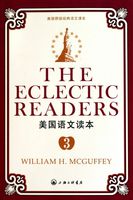【Introduction】
Some facets of the Mozilla Project are not concerned with source code development, but nevertheless are organized as modules. Module owners in nontechnical areas seek experts in marketing, user support, beta testing, and event planning. Nontechnical modules are hierarchical in nature; Mozilla collaborates with individuals who are on paths to leadership roles in the Mozilla Project.
Mozilla crowdsources technical support for Firefox users at support.mozilla.com, a Web site known by its acronym, SUMO (SUpport.MOzilla.com).[42]SUMO is a portal to a suite of social networking tools that enable Firefox users to seek technical advice from each other in a variety of formats. Mozilla also uses the Internet to organize a global network of user groups. These groups promote the Firefox browser by performing such business practices as public relations and research and development on a grassroots level. Commensurate with a regional sales force, user groups also advocate the use of the Firefox browser in their local communities.
【Volunteer User Support】
The widespread use of social networking tools such as electronic mailing lists (listserv), wikis, online chat rooms, and blogs, and the rise in popularity of social networking services like MySpace and Facebook beyond the presence and scope of even the most enduring fads, suggest the potential of the interconnectedness of communications technologies to create more and vaster online communities. The use of a Web site as a portal to an aggregation of networks demonstrates a basic design principle in the interdependence of online media. Single Web sites often link to blogs, chat rooms, services such as Facebook, and other Web sites. The Mozilla Foundation consolidates its online reach at mozilla.org, "an entry point that provides a high-level overview of the different community areas.'[43]
Firefox users access technical support at the SUMO Web site.[44]Navigating SUMO, individuals can either seek technical advice or volunteer their knowledge of the browser to the troubleshooting of technical problems faced by online peers. Community-based support at SUMO takes three forms: wiki, blog, and chat room.
The SUMO Knowledge Base is a collection of articles written by and for Firefox users on basic troubleshooting, browser installation procedures, browser customization through add-ons, data recovery, and many other topics. Browser users are also invited to edit and update articles. They translate postings into other languages. In the spirit of Wikipedia, the Knowledge Base is a continuously updated, community-written user manual. New articles and editorial changes to existing articles are approved and published in the Knowledge Base through a managerial system similar to module ownership.[45]A new or revised article is placed in a staging area for review by the online community. Contributors with "approver' authority act as the contributing writer's peer reviewers. They approve articles and transfer them in the Knowledge Base.
The Knowledge Base is the first tier in what Mozilla stakeholders call the "support funnel'—a series of volunteer-based SUMO resources that helps the user find answers to his questions about Firefox.[46]If an individual does not find the solution to his problem in the Knowledge Base, he may direct his questions to a support forum, of which there are many in the online Mozilla community. Support forums are blogs linked to support.mozilla.com. An individual begins by browsing the blog directories to see if the community has already addressed his topic of interest. If not, he is free to post a new question and introduce a new thread. As with the Knowledge Base, support forums are maintained by volunteers and depend on a culture of peer review.
One may also seek technical advice in a chat room at support.mozilla.com. These forums are similar to the blog-based forums, except that conversation between the inquirer and the volunteer expert is live.
Some instructive qualities of SUMO that may be applied to governance include the following:
Participants can document their experiences.
By publishing their accounts online, participants can contribute to a community-wide knowledge base, one that can be organized by issue.
Networked governance may be organized with Web pages.
A Web page may serve as a portal to other online resources in other formats.
【Firefox User Groups】
The Mozilla development community is bound by the tenets articulated in the Mozilla Manifesto, one of which states that "[t]he effectiveness of the Internet as a public resource depends upon interoperability (protocols, data formats, content), innovation and decentralized participation worldwide.'[47]Decentralized participation on the scale achieved by Mozilla would be unimaginable without the Internet. Firefox users from around the world contribute to the promotion of the browser by forming or joining online user groups or both. As such, Mozilla is more than an open source developer of software: Mozilla applies the concept of community-based software development to open source marketing. Individuals join user groups at spreadfirefox.com, a link at mozilla.org. There are over 200 user groups in this online directory.
【Open Source Marketing】
Many user groups have only a few members. Others, like FoxieWire, a news site dedicated to "everything Mozilla,' have nearly 10,000 members.[48]It serves Mozilla as a volunteer press corps, posting to a communal blog any news items about Firefox, the Thunderbird mail server, and Firefox add-ons. Though it is difficult to ascertain how many of these members are actively posting news items at any given time, foxiewire.com had on average an estimated 12,000 unique visitors each month in 2008. They made an average of 18,000 visits to the site per month.[49]A far smaller number of people contribute to FoxieWire than visit the site for information. Everyone who does contribute postings is a volunteer.
FoxieWire recalls the history of the Associated Press (AP), a cooperative owned by its contributing news agencies. Like the AP, FoxieWire is subscriber-based, however subion to it takes the form of free registration as a member. Also similar to the AP, the Mozilla Foundation is a nonprofit organization that operates like a public utility, in that it does not refuse service to anyone who wants to use the browser. FoxieWire echoes the function of news organizations such as Slashdot.com, a technology-related news site featuring contributions by its users.
Similar to FoxieWire, For the Record (FTR), another user group at spreadfirefox.com, was formed to involve as many people as possible in the telling of the Mozilla story:
For the Record (FTR) is a community-driven public relations and press response program that will harness the energy and knowledge of the Mozilla community to 1) catalog all of the online coverage of the Mozilla Project, 2) develop a sustainable team of spokespeople who feel empowered to respond to online coverage, and 3) build a collection of talking points and responses to frequently asked questions.[50]
Both Web sites share the same function and format. They are both blogs maintained by volunteers, who monitor online coverage of the Mozilla Project. FTR has the more express purpose of managing the image of Firefox in the blogosphere by preparing spokespeople with "talking points.' In further contrast with FoxieWire, FTR has attracted only 30 members, accounting for an average of less than two original postings per month since the end of 2007. This does not mean that FTR will not be a successful and active user group in the future. But it does suggest another characteristic of open source: innovation dependent on decentralized participation requires experimentation and, as such, the understanding that any one project may fail.
In describing the challenges to implementing participatory governance, former CIO of the U.S. Department of Transportation Daniel Mintz writes: "The next administration will face two... challenges... first, how best to build a government organization that can tolerate failure, at least in small doses, and second, how to make a government agency or department organizationally agile.'[51]In the spirit of these insights, we may summarize the success of open source marketing as follows:
Open source promotes experimentation.
Open source tolerates failure.
【Community-based Research and Development】
Another marketing arm of the Mozilla Project that is maintained by volunteers is best classified as R&D. Firefox Stats is a user group designed as an open-source marketing agency for the Mozilla Foundation. Its site publishes data about browser market share and links to such blogs as the Blog of Metrics, a formal accounting of the browsers used by individuals to download the Firefox browser.[52]Much like news items, raw data as text and graphics are made available for public use. The service mirrors the offerings of a growing number of civic organizations established to make data both available and useable. The Sunlight Foundation promotes transparency in the United States Congress by aggregating information for use by journalists and bloggers.
【A Mozilla Sales Force】
User groups can also approximate a volunteer sales force. Mozilla Campus Reps is one such group that trains individuals to introduce the Mozilla Project on college campuses.[53]Campus reps in the United States and India post interviews with browser users on YouTube.[54]Campus reps invite students to participate in Mozilla Lab's "Design Challenge,' a contest-like forum for students of design to develop software prototypes for the Internet.[55]Mozilla also sponsors contests in the area of marketing at ImpactMozilla.com. Contestants are invited to submit executive summaries of marketing plans aimed at increasing Firefox's user retention.[56]
The use of games and contests by NGOs and government agencies to increase public awareness of their enterprises is not new. The U.S. Fish and Wildlife Service annually hosts the Federal Duck Stamp Contest. The oldest wildlife art contest in the country, it aims to increase public awareness of waterfowl management in North America.
World Without Oil was an alternative-reality game, which meant that participants played the roles of themselves, instead of creating avatars. The object of the game was for each player to submit depictions—blogs, graphics, emails, phone messages—of what their everyday lives would be like without oil. By June of 2007, when the game ended, over 60,000 people from around the world had participated.[57]
【Global Promotions】
The common interest in promoting Firefox transcends territorial and cultural boundaries. User groups have started up in many countries throughout the world. In his book Internet Politics: States, Citizens, and New Communication Technologies, Andrew Chadwick writes:
Participants engaged in online behavior, such as those, for instance, involved in Usernet discussions, may reside anywhere. What brings them together is not their territorial identity... but common interests that often transcend national boundaries.[58]
Some of the Firefox user groups, like the group Spread Firefox in Maldives, have only a few members. The group calling itself Spread Firefox in the U.A.E has only 14 members. The groups Farsi Firefox, Firefox 4 Sri Lankans, Firefox @ Argentina, and Firefox Armenia, and groups from Finland, Hong Kong, Greece, Israel, and dozens of other countries, suggest the collective enthusiasm of Firefox users to promote the browser globally. We are reminded of the following points:
The asset that Mozilla creates is available to the public for use free of charge.
Mozilla fosters volunteer engagement with its global community through Web sites.
Having a cause around which people can rally, and for which they can take action, helps to spur engagement.
【Mozilla's Use of Social Networking Tools】
The global community of Firefox users at spreadfirefox.com has been instrumental in landmark releases of the browser. On June 17, 2008, a day Mozilla dubbed "Download Day,' over eight million people downloaded Firefox 3.[59]This set a Guinness World Record for the most downloads in a 24-hour period. By July 2, 2008, over 28 million people had downloaded the newly released version of the Firefox browser. In anticipation of Download Day 2008, Mozilla had distributed badges to user-group Web sites at spreadfirefox.com, at the same time requesting pledges from the groups to download the new browser on Download Day. On that day 43 million people visited spreadfirefox.com.
Spreadfirefox.com and its aggregation of user groups are not wholly responsible for the successful launch of Firefox 3. Mozilla employed social networking services such as Twitter, YouTube, the U.S.-based Facebook, and its Japanese counterparts, Bebo and Mixi, in the promotion of Download Day. Paul Kim, vice president of marketing at Mozilla, explains: "We seeded the[Facebook] community with links of articles and other information that pointed to the Download Day site.'[60]
Social networking services allow Mozilla to provide a virtual meeting place for its most avid browser users. In June 2008, the Firefox Facebook fan page listed approximately 115,000 fans. In the same month, unique monthly visitors to social networks like Facebook represented over 60 percent of the world's Internet audience.[61]As of January 2009, Mozilla's Facebook fan base had nearly tripled.[62]Social sites also enable Mozilla to distribute digital information via individual networks of relationships, creating viral channels of distribution.
As we will see in the final section of this report, the success of Mozilla in using the Internet as a medium for collaboration with its browser users suggests the potential of collaboration between governments and constituencies.
【Community-based Research and Development Revisited: Mozdev.org】
Among the many parallels between Mozilla and collaborative governance that we will explore in the final section of this report is the concept of an NGO acting as a "participation broker' between private citizens and government agencies. In anticipation of—and as an introduction to—this discussion, we look to a similar relationship outside of government. The Mozilla community at large comprises smaller and relatively autonomous communities that recruit experts and enthusiasts for their own sake, with the overall goal of promoting the Mozilla experience. Up to this point we have focused on the ability of the individual to offer her or his expertise to technical and nontechnical projects under the Mozilla banner. Now we begin to shift toward the formation of Mozilla-dedicated groups.
Mozdev.org is a Web site created in 2004 by the Mozdev Community Organization, a nonprofit organization designed to support Mozilla's development community. The author of Creating Applications with Mozilla, a longtime participant in the Mozilla development community, and a principal at Mozdev.org, David Bowell explains:[63]
As the open source movement matures, the organizations that support it are growing up, as well. Many projects, including Apache and Mozilla, have already created nonprofit organizations that support their communities. Other open source projects are also considering ways to establish nonprofits.[64]
Mozdev.org offers free project hosting and programming tools to developers to create Mozilla-based extensions that, licensed under an OSI licensing agreement, may or not be qualified for inclusion in upcoming releases of the Firefox browser and other applications. In short, Mozdev.org exists to feed Mozilla innovation. Mozdev.org has created space within Mozilla's framework, where programmers can develop and have ranked cross-platform applications. The distinction between Mozdev.org and Mozilla.org is simple: Mozilla.org is a site where, with regard to the Firefox browser, source code is developed, maintained, and improved; Mozdev.org supports programmers who, in the case of Firefox, create extensions with which the user can customize the browser to her or his needs. The more than 250 projects that are currently hosted at Mozdev.org are ranked based on the number of times each project is viewed.[65]Mozdev.org is similar to Mozilla.org in that it offers participants access to Version Control Systems and Bugzilla, the bug-tracking system. These resources, along with the requisite open-source licensing agreement, ensure that hosted projects are themselves infectious as open source projects. As does Mozilla.org, Mozdev.org also gives participants access to such communications tools as newsgroups, mailing lists, blogs, wikis, and other online forums. Mozdev.org also compiles statistics that describe the extent of a project's visibility and use in the Mozilla community.
An investigation into the benefits and challenges facing any organization that spawns either nonprofit or taxable subsidiaries in support of their missions is worthy of its own discrete study. The Mozilla Foundation created the Mozilla Corporation as a taxable subsidiary that, responsible for product development, marketing, and distribution of Mozilla products, dedicates its revenues to Mozilla.org.[66]A nonprofit organization, the National Geographic Society announced the founding of its own wholly owned, taxable subsidiary, National Geographic Entertainment, in 2007.[67]Our purpose in introducing Mozdev.org as an independent "innovation center' for Mozilla is simply to present the idea that, along with an individual's ambition to participate in the work of an organization like Mozilla, individuals also form and join consortiums that create further opportunities for participation on the part of individuals—whether we call individuals consumers, advocates, private citizens, constituents, and so on.















